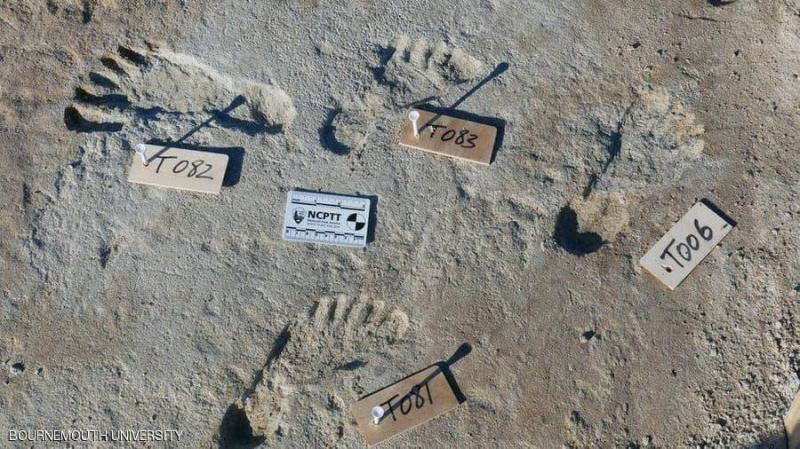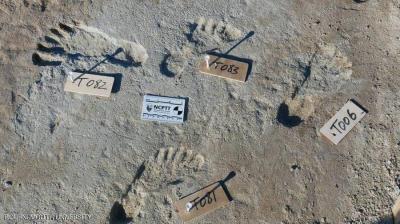In a new finding that challenges previous understandings of the beginning of life in the Americas, a team of researchers has discovered human footprints dating back around 23,000 years. According to the BBC, this discovery by a team of British researchers indicates that humans arrived in the Americas about 7,000 years earlier than previously thought.
The settlement of humans in the Americas has been a subject of debate for decades, with beliefs suggesting it began about 16,000 years ago, until researchers from Bournemouth University found the footprints in New Mexico, USA. The footprints were formed in soft mud on the banks of a shallow lake, which is now part of the White Sands area of New Mexico.
Based on their sizes, the footprints belonged to adults, teenagers, and children who were traveling back and forth, according to the British university's researchers. This discovery could change perspectives on when humans inhabited the Americas, suggesting there may have been significant migrations that are currently unknown to scientists, and it also raises the possibility that these earlier populations may have gone extinct.
Professor Matthew Bennett, the lead author of the research paper from Bournemouth University, stated, "One reason for the ongoing debate is the real lack of unequivocal data." He explained to the BBC, "Footprints are not like stone tools; they are a mark that cannot move up and down (in soil layers)," referring to the accurate information they provide about their age. Additionally, Professor Tom Higham, a radiocarbon dating expert at the University of Vienna, noted that researchers conducted tests on materials near the footprint site and remarked, "I believe their age ranges from 21,000 to 23,000 years."




